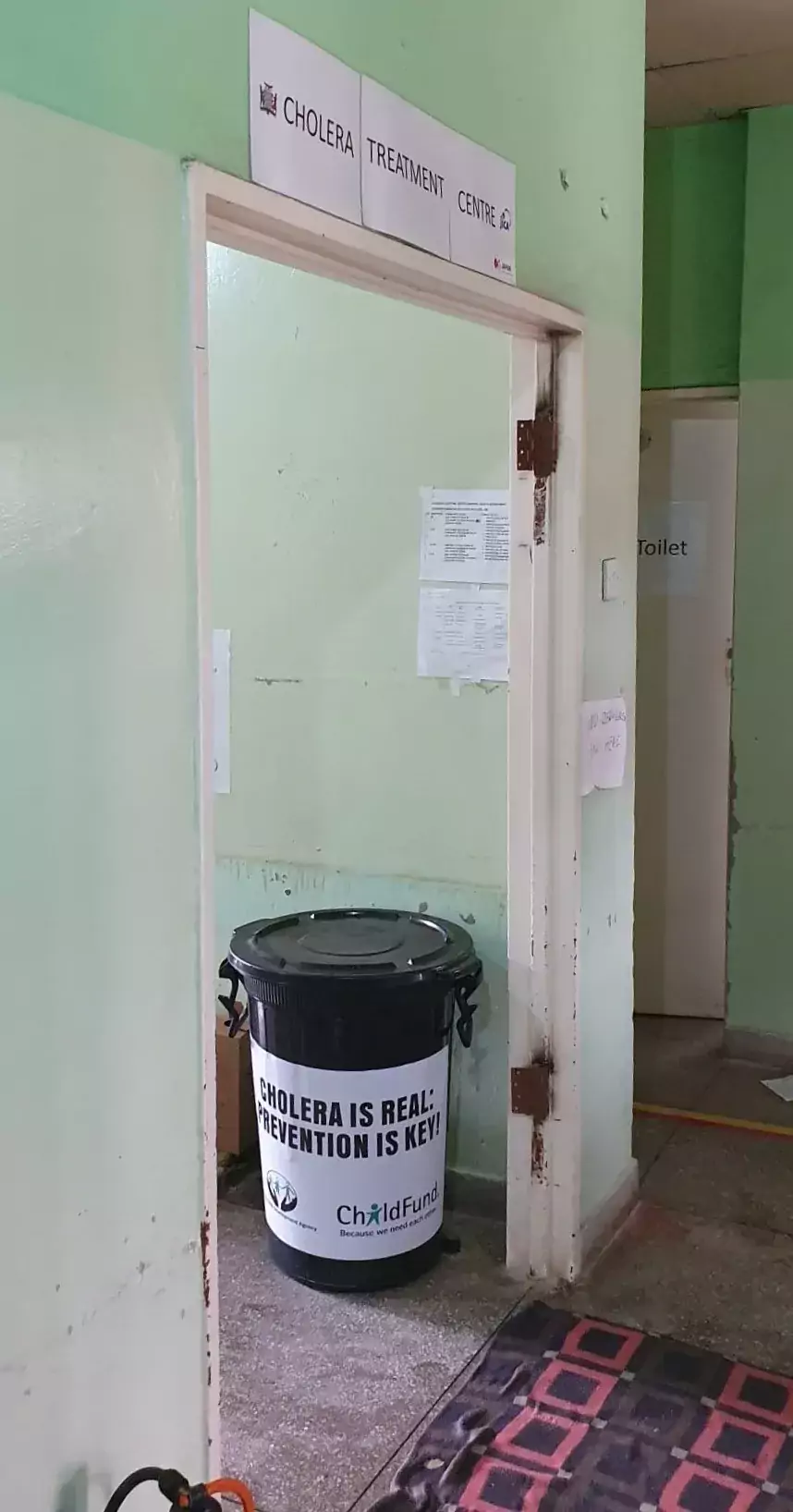The Centre for Health Crises seconds member of staff to cholera outbreak

Zambia is currently experiencing the worst cholera outbreak in over two decades. The acute diarrhoeal disease can be deadly if not treated, however with rapid and correct help, the majority of people affected can be treated successfully. The Centre for Health Crises as seconded members of staff to cholera outbreaks before, and on the 26th of January, Caroline de Groot went to Zambia, via the Centre’s collaboration with Médecins Sans Frontières (MSF).

Caroline is the coordinator for university collaboration at the Centre for Health Crises. In her role, she dedicates a lot of her time to the Centre’s work on developing collaboration between universities in the field of health crises. Prior to joining the Centre in June of 2023 Caroline, who is an alumnus of KI’s Master’s Programme in Global Health, worked in several MSF projects, in Bangladesh, in South Sudan and in Ukraine. So in some sense it was a return to a familiar organisation, when she responded to the call for staff to urgently join the mission to assist in the cholera outbreak in Zambia.
Hundreds of new cases everyday
The current outbreak was first reported in October 2023, but saw a dramatic increase towards the end of the year and in early 2024. Cholera is a treatable disease. The WHO recommends prompt administration of oral rehydration solution (ORS), and for severely dehydrated patients, rapid administration of intravenous fluids. Several measures have been put in place to manage the outbreak, which at one point reached the level where 500-600 new cases were reported every day, including the establishment of a large-scale treatment centre at the main football stadium in the capital Lusaka.
MSF responded to a request to assist the country’s health authorities and began setting up its mission a few weeks ago. The organisation is assisting local cholera treatment centres, where ORS and other treatment is administered, as well as working on community health promotion and water-and-sanitation initiatives, including chlorination.
A lot of very necessary paperwork
Caroline joined the mission early on, and initially focused mainly on acquiring authorisation from Zambian authorities for MSF to start it operations and for the international staff to assist in alleviating the health crisis and work in the country. She also created a first budget for the mission. Subsequently, her work continues with a focus on, among other things, collaboration with the Zambian Ministry for Health and coordination of training initiatives.
It is a lot of paperwork, but it is also vital that we have the correct documentation, agreements and procedures to be able to do our work. The fact that we got here early was incredibly valuable, says Caroline.
Secondments of both medical and non-medical expertise
Zambia is seeing a decrease in the number of new cases, but MSF will nonetheless continue to lend assistance to combating the outbreak. However, for Caroline, it is soon time to come back to Stockholm and her office at KI, having gained another valuable experience of working in an ongoing health crisis. Once she is back, she will continue her work on university collaboration, and in particular on developing the Health Crises Network, that was formed in December 2023.
The Centre for Health Crises seconds both medical and non-medical expertise to ongoing health crises around the world, as well as to support preparedness and evaluation, through collaborations with organisations such as MSF. The secondments are in line with the Centre’s aim to lend support in ongoing health crises and to initiatives aimed to increase preparedness for future crises. Additionally, through the secondments valuable skills in operating under resource-constrained conditions are brought back to Sweden.
